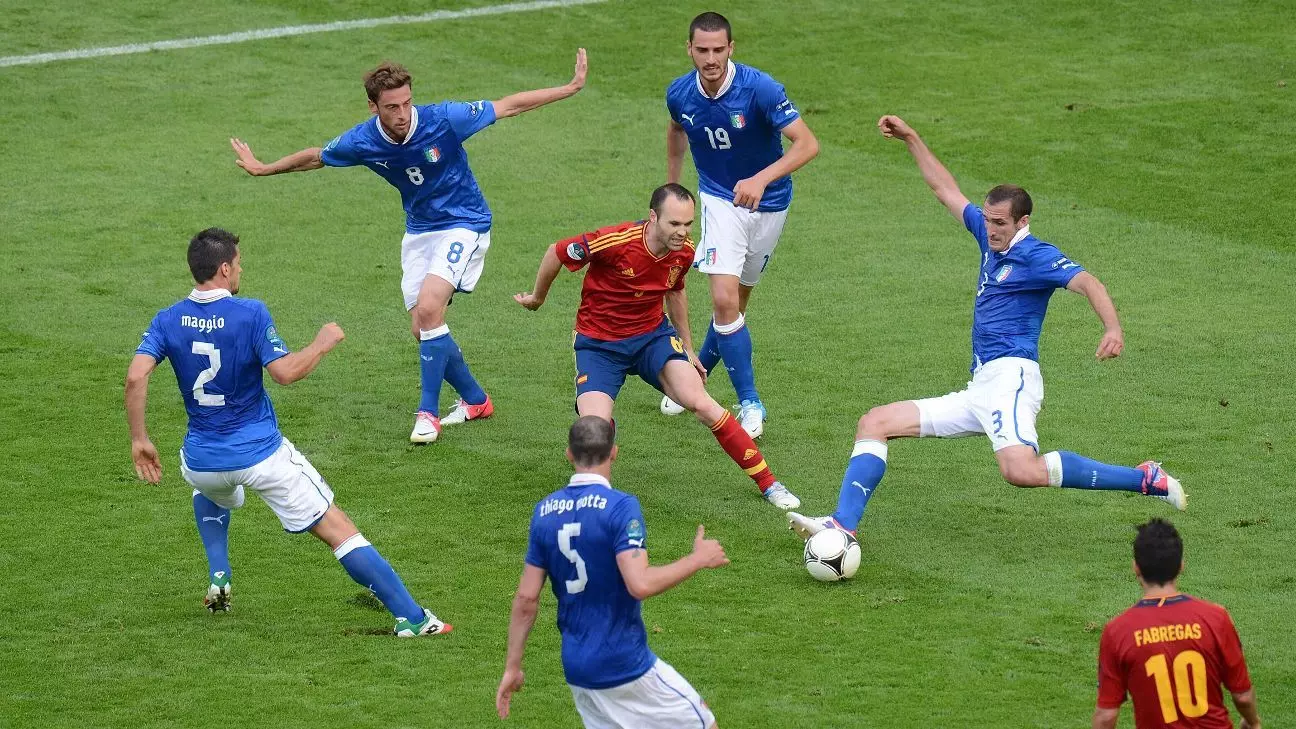Andrés Iniesta, a name synonymous with grace and mastery on the football pitch, confirmed his retirement on a Tuesday in October, marking the end of a glorious saga that spanned over two decades. Emerging as one of the sport’s brightest midfield talents, Iniesta’s history is woven with an impressive tapestry of achievements, featuring over 1,000 appearances and an astounding collection of 38 trophies, including the coveted FIFA World Cup and multiple UEFA Champions League titles. Having turned 40, the curtain has fallen on a career that has forever altered the landscape of football.
Iniesta was a prodigy from an early age, capturing the attention of scouts with his exceptional skills and impact in youth tournaments. Notably, his 12-year-old triumph at the prestigious 1996 Brunete Championship earned him the MVP award, propelling him from Albacete to the renowned FC Barcelona youth academy, La Masia. By the age of 15, he was dazzling audiences on the grand stage of Camp Nou during the Nike Cup, where Pep Guardiola, then part of the first team, recognized Iniesta’s potential, predicting a future where his gifts would redefine greatness in football. Such foresight proved prescient as Iniesta grew into a pivotal component of Barcelona’s attack.
Instituting his legacy in the grandest of stages, Iniesta’s dramatic late goal against Chelsea in the 2009 Champions League semifinal not only secured a place in the final but also etched his name into the annals of football history. The moment, marked by its exhilarating tension, led to a cultural phenomenon—an astounding baby boom in Catalonia, with a notable spike in births nine months post-match, cementing the “Iniestazo” as a legacy far beyond the football pitch.
The iconic World Cup final in 2010 against the Netherlands epitomized Iniesta’s career brilliance. With the match strict and unforgiving, penalties looming over La Roja, Iniesta maintained composure to dispatch a decisive goal in the 116th minute. His celebration, heartfelt and respectful, honored his late friend Dani Jarque, revealing a T-shirt that read, “Dani Jarque, always with us.” This significant act illustrated not just Iniesta’s prowess as a player but also his depth as a person, intertwining personal loss with triumphant success.
Iniesta’s extraordinary form continued during the UEFA Euro 2012, where he seamlessly guided Spain to their third consecutive major tournament victory. His naming as the tournament’s MVP underscored a performance that blended elegance with efficacy. A particular photograph from that final, showing Iniesta ensnared by five Italian defenders, serves as a stark reminder of his ability to transcend defensive strategies and emerge as the heartbeat of the Spanish national team.
The magic of Iniesta, however, was not confined purely to his goals or assists. It was also in his artistry, a technical beauty encapsulated in moves that left fans and opponents alike in awe. One such technique was “La Croqueta.” Although not invented by him, Iniesta revitalized this elegant maneuver, switching the ball deftly from one foot to another to glide past defenders. This display of control has become emblematic of his genius, a signature reminiscent of a magician revealing simple yet profound tricks to bewilder any audience.
Under Pep Guardiola’s mentorship, Iniesta became instrumental to Barcelona’s treble-winning campaign in 2015, where he showcased the ability to orchestrate play from deep and create opportunities with an almost telepathic understanding of his teammates’ movements. His performance in one Champions League quarterfinal, where he masterfully navigated past several defenders to assist Neymar, further exemplified why he is revered as one of the sport’s elite.
As he bid farewell to the sport he illuminated with remarkable skill and humility, Iniesta’s legacy extends beyond individual accolades. He garnered immense respect, not only from fans of FC Barcelona but also from adversaries, including Real Madrid’s supporters who acknowledged his brilliance with standing ovations at Santiago Bernabéu.
In his final appearance at the Copa del Rey in 2018, even as he neared the twilight of his career, Iniesta demonstrated that his love for the game had not wavered. His stellar performance against Sevilla was crowned with a beautiful goal, yet it was the emotional gravitas of his farewell that resonated most profoundly. With tears slipping down his cheeks, he left an indelible mark—not simply on the scoresheet but on the hearts of countless fans and aspiring players.
Iniesta’s journey is a testament to the power of dedication, skill, and heart in football. His legacy, marked by unparalleled success and an enduring spirit of sportsmanship, will forever remain a beacon for future generations navigating the beautiful game. As a maestro exits the stage, the football world takes a moment to reflect not just on the goals but on the soul he infused into each match. The beautiful game has lost a luminary, but Andrés Iniesta’s impact will echo through time, inspiring future legends.

